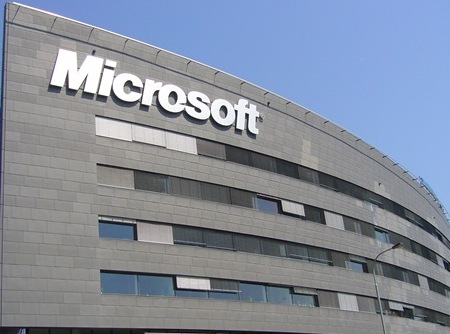  Microsoft Corporation is working on plans to actively engage in Africa’s economic development to improve its global competitiveness through smart devices and technology.
By 2016, the Microsoft 4Afrika Initiative plans to help place tens of millions of smart devices in the hands of African youth, bring 1 million African small and medium enterprises (SMEs) online, up-skill 100,000 members of Africa’s existing workforce, and help an additional 100,000 recent graduates develop skills for employability, 75 percent of which Microsoft will help place in jobs.
“The world has recognized the promise of Africa, and Microsoft wants to invest in that promise. We want to empower African youth, entrepreneurs, developers and business and civic leaders to turn great ideas into a reality that can help their community, their country, the Continent, and beyond,” said Fernando de Sousa, General Manager, Microsoft 4Afrika Initiative. “The Microsoft 4Afrika Initiative is built on the dual beliefs that technology can accelerate growth for Africa, and Africa can also accelerate technology for the world.”
As a first critical step toward increasing the adoption of smart devices, Microsoft and Huawei are introducing the Huawei 4Afrika – a full functionality Windows Phone 8 which will come pre-loaded with select applications designed for Africa. The phone will initially be available in Angola, Egypt, Ivory Coast, Kenya, Morocco, Nigeria and South Africa later this month.
The Huawei 4Afrika phone, which is the first in what will be a series of smart devices designed “4Afrika,” will be targeted toward university students, developers and first-time smart phone users to ensure they have affordable access to best-in-class technology to enable them to connect, collaborate, and access markets and opportunities online.
To improve technology access, Microsoft also announced the deployment of a pilot project with the Kenyan Ministry of Information and Communications and Kenyan Internet Service Provider, Indigo Telecom Ltd., to deliver low-cost, high-speed, wireless broadband and create new opportunities for commerce, education, healthcare, and delivery of government services across Kenya. The deployment is called “Mawingu,” which is Kiswahili for cloud. It is the first deployment of solar-powered base stations together with TV white spaces, a technology partially developed by Microsoft Research, to deliver high-speed Internet access to areas currently lacking even basic electricity. Microsoft hopes to implement similar pilots in East and Southern Africa in the coming months to further explore the commercial feasibility of white space technologies. These pilots will be used to encourage other African countries to accelerate legislation that would enable this white spaces technology to deliver on the promise of universal access for the African Continent.
To help empower African SMEs, Microsoft announced a new online hub through which African SMEs will have access to free, relevant products and services from Microsoft and other partners. The hub will aggregate the available services which can help them expand their business locally, find new business opportunities outside their immediate geography, and help increase their overall competitiveness. As a “welcome offer,” Microsoft will provide free domain registration for the period of one year and free tools for qualifying SMEs interested in creating a professional web presence. The hub is expected to open in April initially in South Africa and Morocco and will expand to other African markets over time.
To accelerate capacity building and skills development, Microsoft has established the Afrika Academy, an education platform leveraging both online and offline learning tools, to help Africans develop both technical and business skills for entrepreneurship and improved employability. Training through the Afrika Academy will be made available starting in March at no cost to recent higher education graduates, government leaders, and the Microsoft partner community. One of the first offline training sessions will take place with Microsoft managed partners in Ivory Coast in the coming months, focusing on capacity building in both business and technical skills for our partners in francophone West Africa.
The 4Afrika Initiative will be tightly connected to Microsoft’s network of more than 10,000 existing partners in Africa today, a network it has built over 20 years of investing and operating in the Continent. The 4Afrika Initiative will leverage these existing partnerships and create new ones across both the public and private sectors to help advance common goals and to create value for Africans.
“We believe there has never been a better time to invest in Africa and that access to technology, particularly cloud services and smart devices can and will serve as a great accelerator for African competitiveness,” said Jean-Philippe Courtois, President of Microsoft International. “The launch of Windows 8 and many other new products in the coming months represent a New Era for Microsoft Corporation, which we believe will redefine the technology industry globally. These additional investments under the 4Afrika banner will help define our company’s New Era in Africa.”
For Latest Updates Visit : http://www.facebook.com/pages/TelecomTiger/429104257149437 |